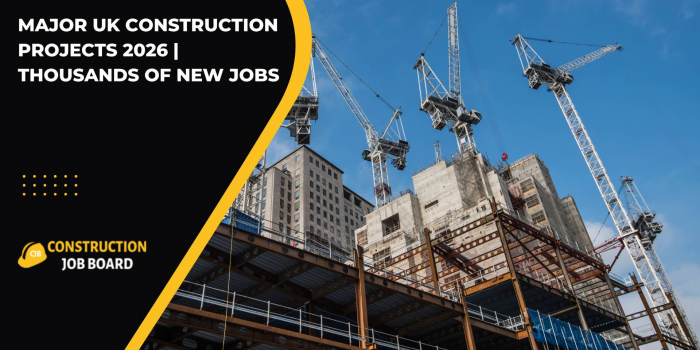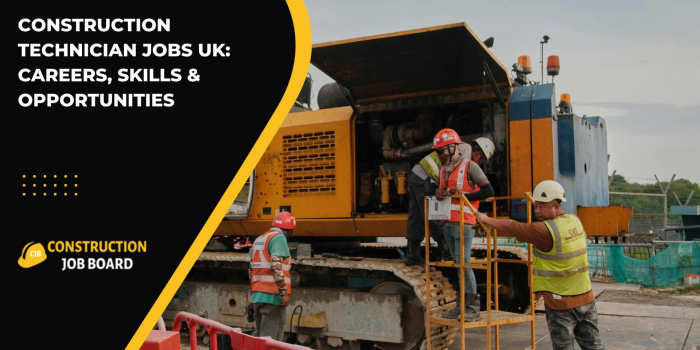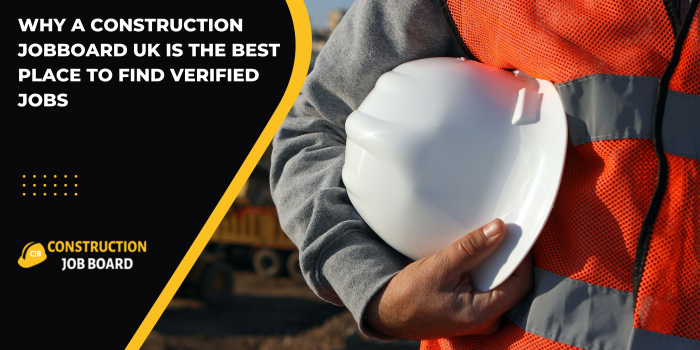How Brexit Reshaped the UK Construction Industry: Challenges and Opportunities
15/05/2024

Brexit and Its Impact on UK Construction Jobs
More than four years ago, the UK was part of the EU’s single market and customs union. Even though the country avoided the feared hard Brexit, contractors were anxious about the possible difficulties. Brexit has brought massive disruption to many industries in the UK, and construction jobs UK are no exception. This article explores the post-Brexit challenges and opportunities affecting jobs in construction across the country.
1. Labour Shortages and Recruitment Gaps
Brexit has caused a considerable labour shortage in construction. With the end of free movement from the EU, the number of EU nationals working in the industry has declined. This has created significant recruitment gaps for labourer jobs, site manager jobs, and skilled trades like plumbers mate jobs and telehandler jobs. Contractors face project delays and rising labour costs, making it harder to remain competitive.
2. Uncertainty in Construction Projects
The post-Brexit environment has brought uncertainty in terms of trade, regulation, and workforce mobility. This affects construction manager jobs and assistant site manager jobs, as companies delay major investments and new projects. The unpredictability of the market impacts everything from planning to long-term project delivery.
3. Access to Funding
Brexit ended the UK’s access to the European Investment Bank (EIB), stalling some major construction recruitment and infrastructure projects. Without clear funding alternatives, developers in cities like Leeds, Sheffield, and Liverpool face difficulties sustaining growth in construction jobs.
4. Supply Chain Disruption
One of the most immediate effects has been on material supply chains. Importing construction materials has become more expensive and slower, affecting construction jobs Leeds, construction jobs Bristol, and other major hubs. Contractors have had to adapt through local sourcing, reducing reliance on EU imports.
5. New Regulations in the Construction Industry
Post-Brexit, the UK introduced new building standards and regulations. These changes impact both quantity surveyor jobs and compliance roles across the sector. Companies exporting to the EU must also meet updated regulatory standards, increasing operational complexity.
6. Opportunities and Growth Potential
Despite the challenges, Brexit has opened new opportunities for the UK construction industry. Government infrastructure investments could boost construction jobs Sheffield, construction jobs Leicester, and construction jobs Croydon. Firms willing to innovate and upskill employees can secure sustainable growth.
7. Training and Skill Development
To address the workforce shortage, companies are investing in apprenticeships and internal training. This helps build a stronger base for electrical improver jobs, traffic marshall jobs, and other in-demand construction roles. It’s also creating more stable long-term career opportunities in the sector.
8. Innovation and International Trade Opportunities
Brexit has pushed companies to adopt new technologies and explore global trade agreements beyond the EU. This is expected to create more specialized jobs in construction UK while strengthening the industry’s competitiveness.
Conclusion
The impact of Brexit on UK construction jobs is a mix of challenges and opportunities. Labour shortages, funding gaps, and supply chain issues have made the landscape tougher — but with innovation, training, and smart government policies, the sector can thrive. Whether it’s construction jobs Liverpool, telehandler jobs, or quantity surveyor jobs, the industry is evolving to meet new demands.
FAQs: Brexit and the UK Construction Industry
Q1. What has been the biggest impact of Brexit on the UK construction industry?
The most significant effects include labour shortages, supply chain disruptions, and funding uncertainty, all of which have reshaped how the sector operates post-Brexit.
Q2. Why have UK construction firms faced labour shortages after Brexit?
With the end of free movement from the EU, fewer skilled EU nationals entered the UK workforce, leading to a shortage of qualified construction workers across various roles.
Q3. How have supply chain disruptions affected construction projects?
Imported materials from the EU became more costly, delays in delivery increased, and both project budgets and timelines came under considerable pressure.
Q4. What regulatory changes occurred in UK construction after Brexit?
The UK introduced its own building and safety standards, while companies exporting to the EU must now meet new compliance and regulatory requirements.
Q5. What has been the impact of leaving the European Investment Bank (EIB)?
UK construction projects lost access to EIB funding and have had to look for alternative financing sources. However, a clear and consistent replacement system has not yet been fully established.




























































































































